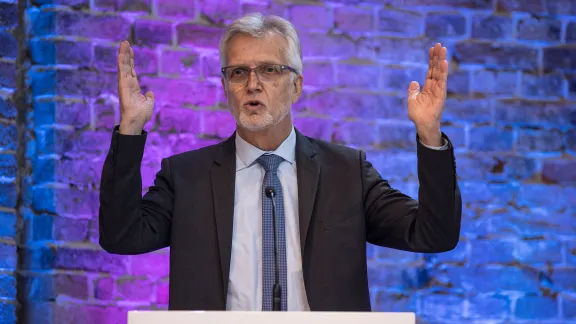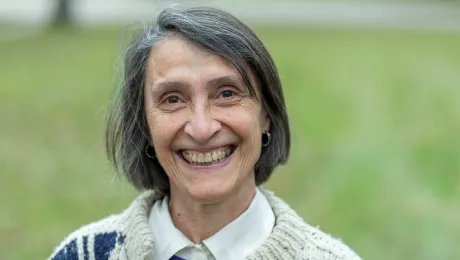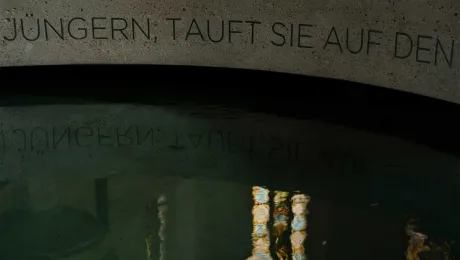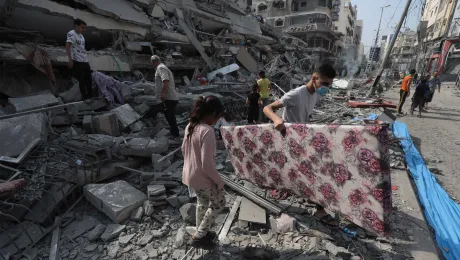
LWF General Secretary Martin Junge speaking at the farewell-event for the outgoing President of Bread for the World, Cornelia Füllkrug-Weizel. Photo: Hermann Bredehorst/Brot für die Welt
LWF General Secretary speaks at a symposium on civil society engagement
(LWI) - Churches and faith-based organizations (FBO) share the public space with a range of other civil society actors. They must find a unique way to raise their prophetic voice for the most vulnerable. This was one of the key messages of a keynote speech by the Lutheran World Federation’s (LWF) General Secretary, Rev. Dr. Martin Junge, at a symposium of Bread for the World on 28 May.
The symposium was titled “And now even Corona: Sustainable Development and Humanitarian Assistance need a strong Civil Society – more than ever!” It was held as a farewell to the outgoing President of Bread for the World, Rev. Prof. Dr. h.c. Cornelia Füllkrug-Weitzel.
Bread for the World has been a partner of the LWF since its founding in 1959.
Contributions of churches and FBOs to the public space
Junge’s input centered on the topic the contribution of churches to sustainable development and humanitarian aid. He emphasized that diakonia is an essential part of being church. Diaconal engagement can be seen as “compassion with a drive towards justice,” which takes place in humanitarian and development work, and in advocacy.
There are good biblical and theological reasons for churches to be active in these fields. Churches do not need to explain their engagement in diakonia, sustainable development, and humanitarian aid, said Junge. On the contrary, such work is central to their calling to care for the vulnerable neighbor.
He named four factors that make the position and contribution of churches and FBOs civil society unique: Unlike many international organizations, churches and FBOs are present at the local level. They stay when many aid organizations have left. Churches also have access to the local people and communities, and often even to local and national governments, Junge added. Furthermore, churches and FBOs know the cultures, norms, and people at the local level. Finally, churches and FBOs have influence and credibility in their respective societies.
Here churches and FBOs can add value, he said, adding that this makes the LWF and its diaconal arm, World Service, a valued partner to the UN and other international institutions working in humanitarian and emergency aid.
It is vital, said the LWF general secretary in conclusion, that churches and FBOs engage with the public space and learn from it. Understand how others work and understand the public space. That will also provide an opportunity to join forces with other actors. “Truly understanding potential partners is essential to be a respected actor in the public space.”
By LWF/A. Weyermüller


